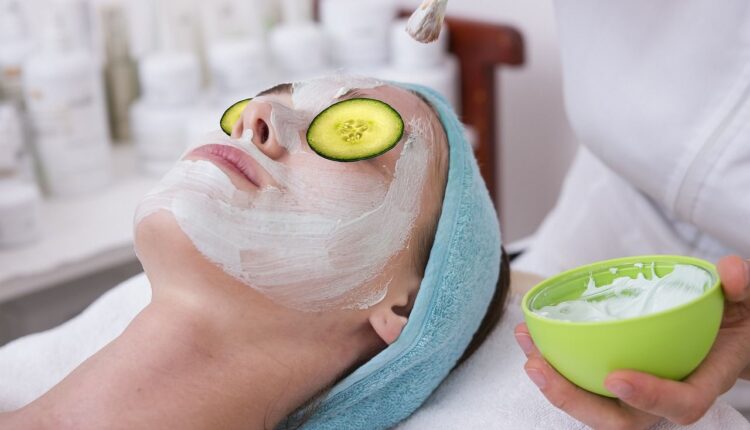Table of Contents
Your skin is your body’s largest organ, making up about 15% of your total body weight. It serves as the primary barrier to viruses, bacteria, and other environmental threats. Taking good care of your skin is essential to overall health and well-being. Read on to learn why caring for your skin properly should be part of your self-care routine.
Protecting Yourself From Harmful Uv Rays
Exposure to ultraviolet (UV) radiation from the sun is one of the most common causes of skin damage. UV rays penetrate and alter skin cell DNA in ways that can lead to premature aging and skin cancer. Using a broad-spectrum sunscreen with an SPF of 30 or higher every day is important. Seek shade during peak sun hours. Cover up with UV-blocking clothing, sunglasses, and hats. Examine your skin monthly for any new or changing moles or spots. Protecting yourself from excessive UV radiation helps keep your skin looking youthful and reduces skin cancer risk.
Combating Acne And Breakouts
Acne is the most common skin condition in the United States, affecting around 50 million Americans annually. Hormonal fluctuations, excess oil production, clogged pores, bacteria, and inflammation all contribute to breakouts. A proper acne skincare regimen including ingredients like benzoyl peroxide and retinoids can help reduce and prevent pimples. Don’t pick or pop pimples to avoid scarring. See a dermatologist for prescription medications if over-the-counter options aren’t giving results. Taking care of acne makes way for clear, confident skin.
Keeping Your Skin Properly Hydrated
Skin lacking proper moisture is more prone to issues like flaking, itching, cracking, and wrinkling. Healthy hydration comes from within by drinking adequate water daily. Look for moisturizing ingredients like ceramides, hyaluronic acid, and glycerin in skincare products. After bathing, gently pat the skin dry and apply moisturizer while it’s still damp to seal in moisture. Use oil-based products like balms on extra dry areas. Humidifiers add moisture to the air. Staying hydrated keeps skin supple and smooth.
Improving Skin Texture And Tone
Using alpha hydroxy acids (AHAs) and retinoids helps boost collagen production and skin cell turnover to improve texture, tone, and radiance. AHAs like glycolic and lactic acid exfoliate dead skin cells. Retinoids help fade spots and even skin tone. In-office procedures like chemical peels and microdermabrasion remove the outer layers of skin to smooth roughness. Always wear SPF when using these products to avoid sun sensitivity. Caring for your skin’s texture gives you a glowing, even complexion.
Apart from these, regular visits to a salon also help to keep your skin healthy and glowing. If you find it difficult to make it to the salon regularly, click here to purchase their products and start taking care of your skin at home.
Preventing Premature Aging
Sun exposure, genetics, and lifestyle factors cause the skin to age prematurely. Using broad-spectrum sunscreen and antioxidants like vitamin C protects against UV damage and free radicals. Retinoids boost collagen and normalize pigment. Alpha hydroxy acids exfoliate away dullness. Peptides prompt firmer, smoother skin. Growth factors like niacinamide improve elasticity. Proper cleansing and moisturizing maintain the skin barrier. Anti-aging care keeps your skin looking plump, smooth, and youthful.
Treating Specific Skin Conditions
Those with conditions like eczema, rosacea, and psoriasis require extra skin TLC. Eczema care involves gentle cleansing, consistent moisturizing, and avoiding triggers like fragrances. Rosacea needs sun protection, anti-inflammatories, and gentle skin products. Psoriasis requires medication, hydration, and avoiding scratching. Seeing a board-certified dermatologist ensures you get proper diagnosis, treatment, and maintenance care for your condition. Caring for your specific needs results in comfortable, happy skin.
Protecting Skin From Damaging Pollution
Environmental pollution can wreak havoc on the skin. Particle matter, cigarette smoke, and ozone cause inflammation and collagen breakdown. Using antioxidant serums, clay masks, and air purifiers helps neutralize pollution effects. Washing your face after being outside gets rid of debris that settled on the skin. Reducing time spent near heavy traffic areas lowers exposure. Seeing a dermatologist for procedures like micro-needling helps repair pollution damage. Defending your skin from environmental aggressors is essential.
Relieving Dry Hands From Frequent Washing
Frequent hand washing with harsh cleansers can chap and irritate the skin. Choose gentle, fragrance-free cleansers and lukewarm water. Pat gently to dry then apply a thick, rich moisturizer. Look for hand creams with ceramides, shea butter, and dimethicone to seal in hydration. Wear cotton gloves at night for deeper penetration. Exfoliate with AHAs and moisturize to combat dryness from repeated washing. Your hands work hard and deserve TLC.
See Also:



